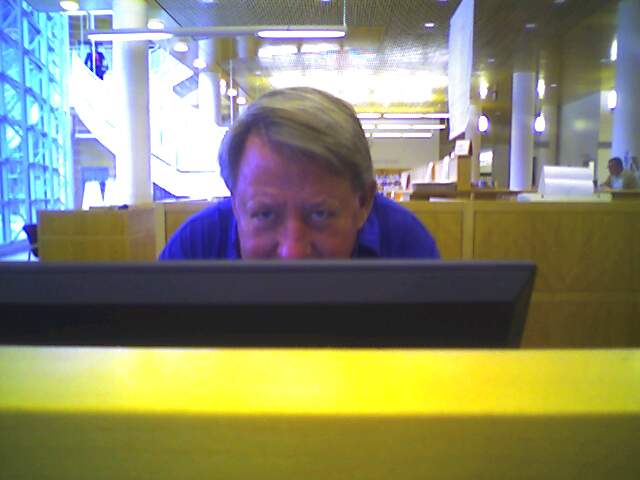Alistair Reid Returns to Greenwich
Christ Church seems to be a launching pad for the careers of young British organists, who come to Greenwich for a year or two as Organ Scholars and then go on to conquer new worlds elsewhere. Tim Smith went to the Riverside Church in New York City, James Kennerley is at St. Mary the Virgin in NYC, Isabelle Demers went to Trinity Church, Wall Street and has now become an internationally famous concert organist, and so on and so forth.
Alistair Reid is no exception to the pattern. After leaving Greenwich he went on to Christ Church Cathedral in Indianapolis for five years, and is now back in England at Coventry Cathedral. He has played at Notre Dame in Paris, Westminster Abbey, St. Paul's Cathedral, and the National Cathedral in Washington, DC. Last Friday evening saw him back on the organ bench at Christ Church here in Greenwich, where many of his former choristers and other friends in the community welcomed him back with a standing ovation.
Alistair's recital program was refreshingly familiar, including several staples of the organ repertory, while also exposing us to a few pieces less frequently heard but still in the mainstream tradition of their respective periods. The opening "Allegro" from Widor's Symphony No. 6 was crisp, strong, and well-articulated, showcasing the organ's bright reeds and mixtures. A perennial audience-pleaser, this piece is often used at the end of a recital rather than the beginning. Alistair was letting us know in no uncertain terms that his artistry begins where most other organists' leaves off.
This was followed by the quieter "Larghetto" by Samuel Sebastian Wesley, the well-known 19th-century English composer and organist. What is less well known, as Alistair confided in us, is that Wesley was fired from no fewer than four cathdral posts because of his eccentricities, including the love of fishing that often seduced him away from the organ benches where he was supposed to be.
Mendelssohn's Third Organ Sonata is another staple of the organ repertory, in which two sunny passages in A major book-end a much darker fugal fantasia on the chorale "Aus Tiefer Not". Alistair performed the piece with a fiery energy that surely approximated that of Mendelssohn himself before his untimely death in his late 30s. The second (and last) movement of the sonata is, in Alistair's phrase, a "song without words", a peaceful envoi to the Sturm und Drang that preceded it.
Gigout's "Scherzo" showcased some of the tonalities of the gallery organ, as a musical cat-and-mouse game played out across the heads of the audience. True to form, both composer and performer earned an appreciative chuckle at the end.
Dan Locklair's "The Peace may be exchanged" gave a nod to contemporary American organ music. Quiet and meditative, it was part of the music chosen for the funeral service of President Ronald Reagan at Washington Cathdral.
Bach's Fantasia in G, also known as "Piece d'Orgue", shows the German baroque composer's familiarity with the virtuoso styles of his French contemporaries. The bright opening arpeggios give way to a dense five-part chorale-type middle section, which is all too easily allowed to drag by many organists. Needless to say, Alistair avoided that trap, harnessing his youthful energy and skillful articulation to give a performance that Bach himself would no doubt have approved.
One more relatively quiet piece set the stage for the grand finale, of which more in a moment. The palate cleanser was an impressionistic piece by an early 20th century French organist, Ermend Bonnal, entitled "La Vallee de Behorleguy, au matin". This tone-poem attempts, in a manner not unlike that of Debussy, to paint in music the Basque countryside on the border of France and Spain. Charming, if a tad insubstantial, it was a perfect lead-in to...
...Louis Vierne's famous "Final" from his Symphony No. 1, "perhaps his best work," as Alastair told us. Blind from birth, Vierne died as he would have wished, at the console of his beloved Cavaille-Coll organ in Notre Dame. This brilliant, coruscating piece was the perfect finale to a wonderful recital, bringing the audience to its feet with loud applause and shouts of "Bravo!" All in all, the evening was truly a memorable homecoming by Alistair Reid, and we all hope it will not be too long before he comes back for another visit. Well done, Alistair!


0 Comments:
Post a Comment
<< Home